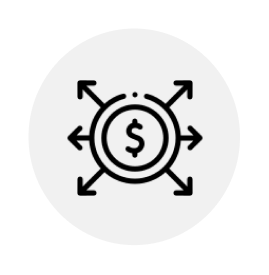Corporate Tax Preparation
At Toronto Tax Boutique, we make corporate tax filing easy for Canadian business owners.
Our tax experts help you save on taxes, stay compliant, and get the most benefits.
Here’s how we can help – so you can focus on growing your business while we handle the taxes!

Strategic Tax Planning for Smart Money Moves:

Balancing Income, Expenses, And Investments For Optimal Tax Management.

Identifying opportunities
to minimize long-term
tax burdens.

Reviewing business
structures and advising
on tax implications.
Customized Tax-effective Business Structure

Tailoring a tax-effective business structure based on your unique
business nature.

Utilizing Available Tax Breaks And Possibilities To Maximize Benefits.

Advising On Effective Strategies to Defer Taxes And Optimize Financial Outcomes.
Comprehensive Services for:

Corporate tax returns, financial statements, and GST/HST returns.

Tax minimization and deferral strategies tailored to your business.

Compensation and payment structure guidance.
Key things to note

All corporations, including non-profits and dormant entities, must file anannual tax return.

Filing a T2 return is mandatory for non-resident corporations with business activities in Canada.

Corporate income tax returns must be filed within six months of the fiscal year-end.

When taxes owed for the previous or current year exceed CAD 3,000, corporations typically make installment payments.
Expert tax filing made simple, transparent, and stress-free. Get the refund you deserve with Toronto Tax Boutique!
Subscribe to get expert tax tips, refund maximization strategies, and exclusive updates—straight to your inbox!




